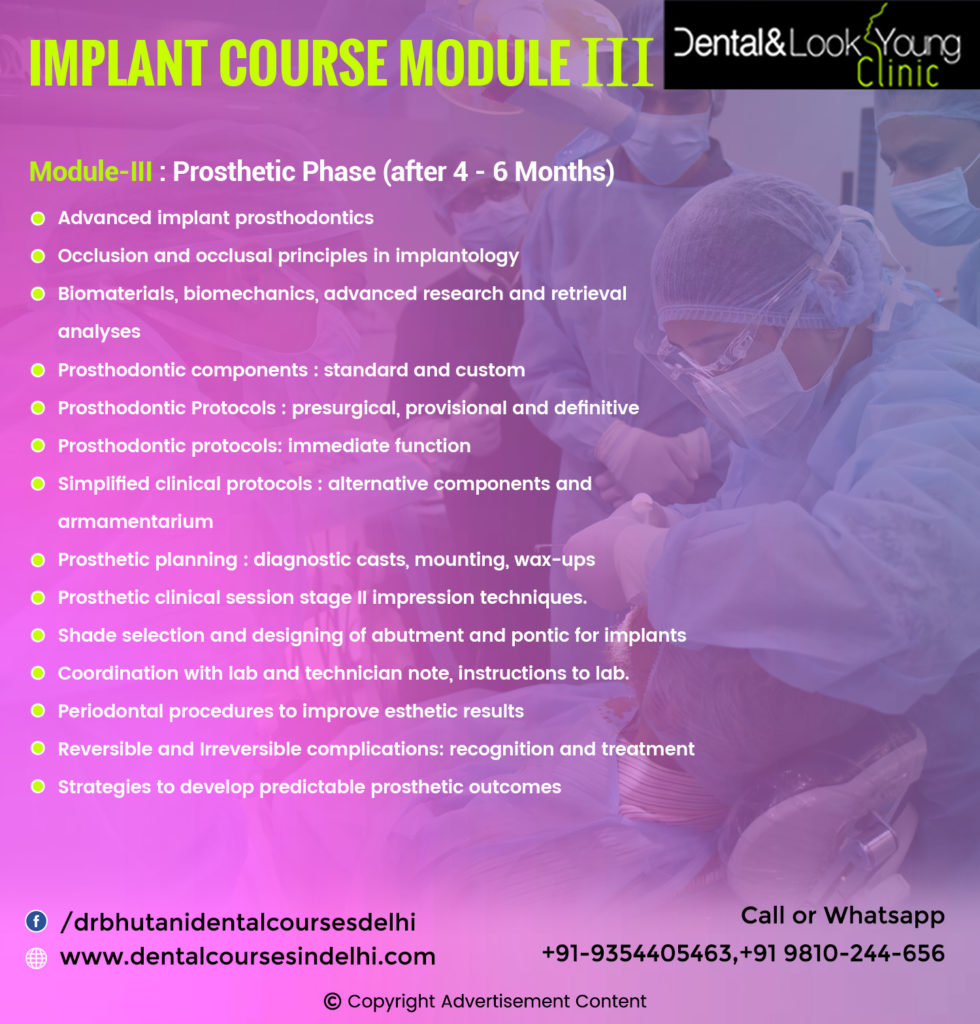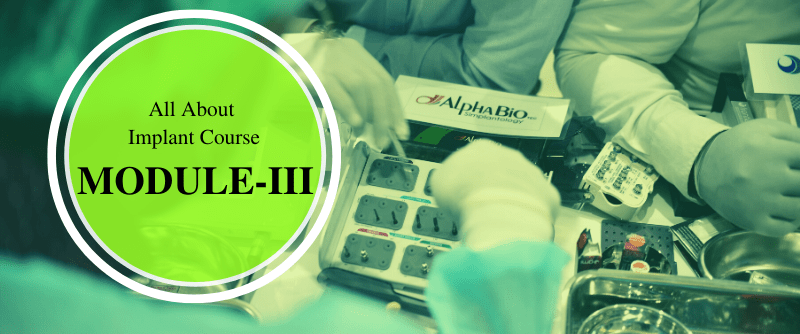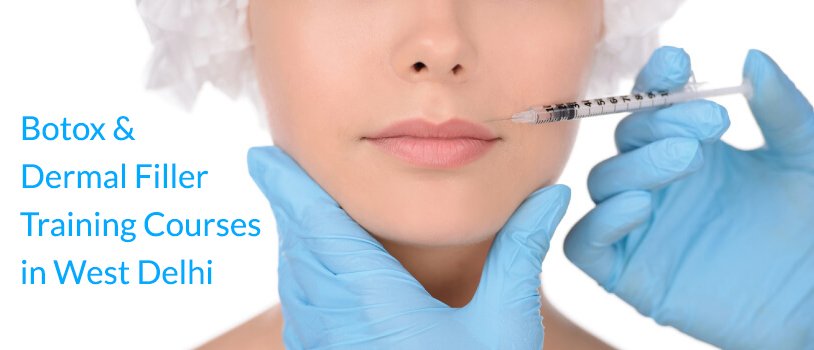Modern dentistry has developed in a big pace due to advanced technology-based dental treatment like dental implants. A dentist should have to make proper treatment planning to provide restorative successful treatment of dental implants. The proper treatment planning includes appropriate surgical procedures and prosthetic phase. We, at Dr. Bhutani Dental Courses in Delhi, are conducting a program as Implant Course – Module III on 1st September and 2nd September 2021. It is mainly based on the prosthetic phase (after 4 to 6 months).
Implant Course – Module III

We, at Dr Bhutani Dental Courses in Delhi, want to develop the knowledge of dental implants within the aspirant dentist to fulfil the goal of modern dentistry. Our program of Module III: Prosthetic Phase (after 4 to 6 months) is based on several things and these are as follows.
- Advanced implant prosthodontics
- Occlusion and occlusal principles in implantology
- Biomaterials, biomechanics, advanced research and retrieval analyses
- Prosthodontic components: standard and custom
- Prosthodontic protocols: presurgical provisional, and definitive
- Prosthodontic protocols: immediate function
- Simplified clinical protocols: alternative components and armamentarium
- Prosthetic planning: diagnostic costs, mounting, and wax-ups
- Prosthetic clinical session stage II impression techniques
- Shade selection and designing of abutment and pontic for implants
- Coordination with lab and technician note, instructions to the lab
- Periodontal procedures to improve aesthetic results
- Reversible and irreversible complications: recognition and treatment
- Strategies to develop predictable prosthetic outcomes
Importance of Prosthetic Phase
Dental implantology involves the anchoring of the dental implants within the jawbones. It provides support as well as retention considering prosthetic replacement of lost teeth. The advancement regarding dental implants designs, techniques, and materials has led to achieving predictable success within the treatment of dental implants. The prosthetic phase of dental implants treatment includes several factors such as lip position, available space for restorative treatment, amount of bone loss, and so on. The selection of materials of prosthetics is an important factor to achieve clinical success. The characteristics of soft tissues within the teeth are also major factors to establish aesthetic oral rehabilitation.
By joining our program of Module III: Prosthetic Phase (after 4 to 6 months), you will get the detailed knowledge of the prosthetic phase involved in dental implants treatment. Be ready and take your final decision for joining our program of Implant Course – Module III: Prosthetic Phase (4 to 6 months).


